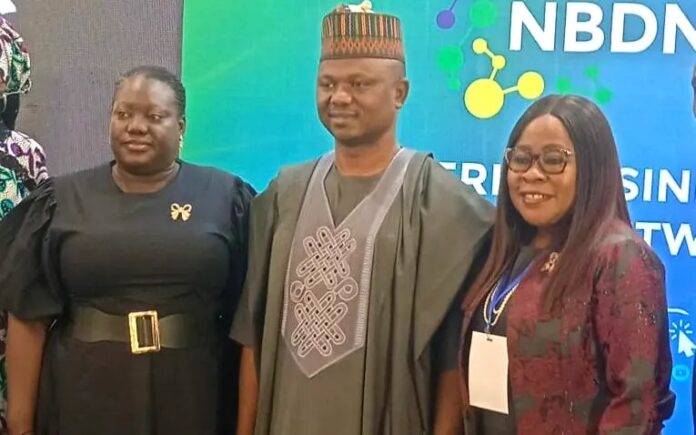- …FG set to launch intervention program for PWDs soon – Commission
By Providence Ayanfeoluwa
The World Bank Group Nigeria has said that out of 18 million People with Disabilities, PWDs, in Nigeria, only 0.3 percent are gainfully employed.
Meanwhile, Executive Secretary, National Disability Commission, Mr. James Lalu, revealed that the federal government would launch the presidential special intervention program for persons with disabilities this year.
They said these weekend, during the maiden edition of Nigeria Diversity and Inclusion conference with the theme: “Eliminating Barriers against Inclusive Workplaces in the Private Sector” organized by Nigeria Business Disability Network, NBDN in Lagos.
In his keynote, Disability Inclusion Consultant, Dr. Adebukola Adebayo, said that the government can reduce the level of unemployment among PWDs by providing the standards, policy, guidelines on accessibility; raises awareness for disability and direct support for organizations willing to employ PWDs through assistive technologies.
Adebayo said: “Years back, we use to struggle to engage the private sector but am happy we now see the private sector converge for our sake, it is a huge leap as far as disability inclusion is concerned.
“We are about 30 million people with disability, of that population, about 18 million are of working age, and of that 18 million, only about 0.3percent are gainfully employed and again of the small number that is employed, many have reported various barriers they experience in their place of work,” he said.
On his part, Lalu said: “We acknowledge that the disability community is on the street, but for us we are expected to launch the presidential special intervention program for persons with disabilities this year. It is going to bring a beautiful initiative.
“It is going to bring a massive skill acquisition program for persons with disabilities. We would provide mass empowerment for PWD. The law bars street begging, yet PWDse are on the streets begging, it is wrong for any person to be using PWDs to beg in the streets to raise income for some people.
Our collaboration with the Inspector General, IG of Police is to make sure that we set up a taskforce across the 36 states of the federation to make sure we deal with this issue. This year we want to start training for the Police Force, disability officers has been established in all the 37 commands in the country where we would start training to provide protection for persons with disabilities and avoid them being used for begging.
“We want to ensure we reduce the discrimination so that people can change the negative judgment they hold against PWDs. We need the data of any organisation that employs PWDs, so that we can give assistant to the employer on any incentive needed to assist them. It is our duty and responsibility to provide opportunity for PWDs.
“The disability commission is going to collaborate with NBDN, we would do everything possible to bring other business partners into this forum to ensure we do what is necessary to improve the quality of life for persons suffering from disability in Nigeria.
Earlier, in her opening remark, Chairperson, NBDN, Mrs. Omobolanle Victor-Laniyan, said that the network was born out of the many gaps with respect to inclusion of persons with disability.
Laniyan said: “We see that businesses have a key role to play in bridging those gaps, so we needed to come together to constitute those network to see how we can collaborate to bridge those gaps to make organizations work place ready for PWDs to ensure that in essence we are inclusive in our approach and we are sustainable. “You would find that PWDS are innovative, to ensure we are not losing out on all those skills and talent, we came up with the NBDN.
“About two years ago a few of my colleagues came together to create the network, following the path of the Global Business and Disability Network of the International Labour Organisation. The network is now a growing community of companies committed to taking steps through policies, programmes and our operations to bring about lasting and transformative change concerning disability inclusion in the private sector,” she said.


